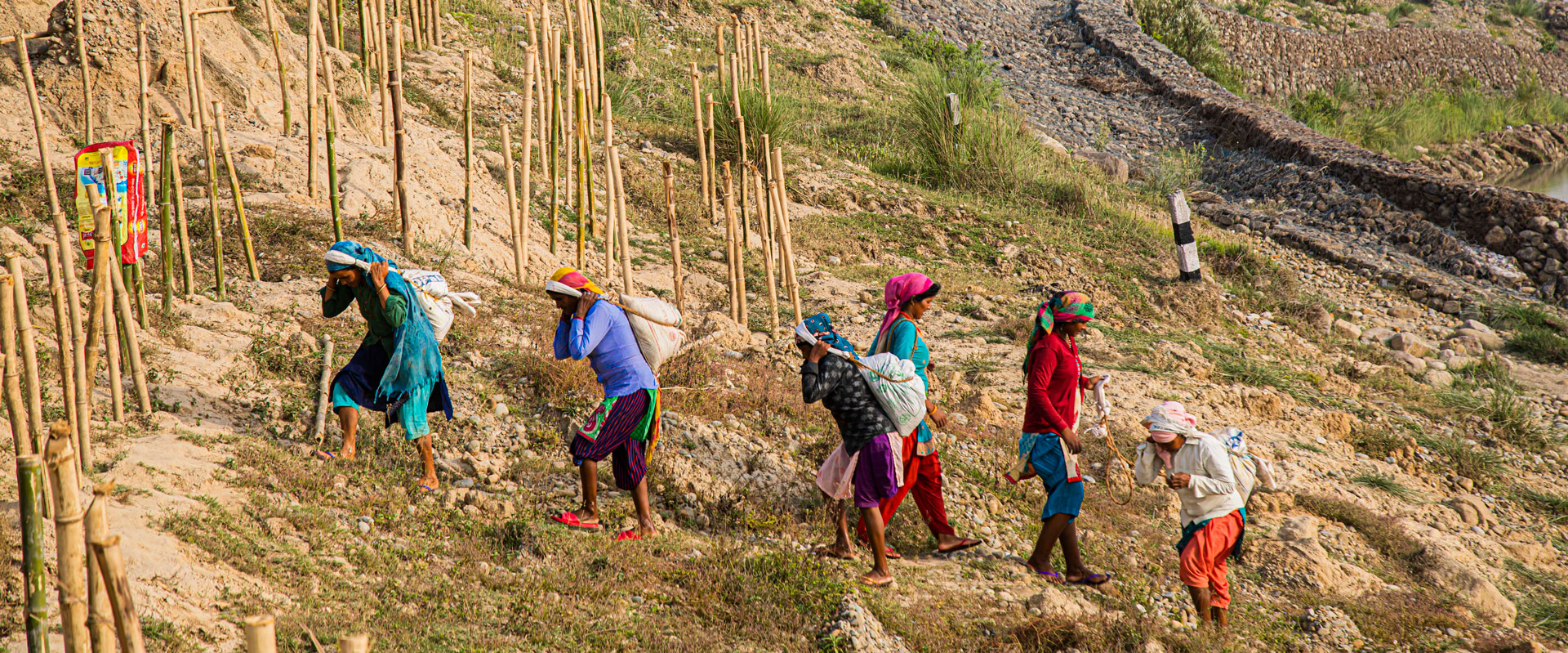Because women and girls need access to reproductive health care during climate crises
Ipas Nepal has been working with government and community partners since 2020 to ensure that sexual and reproductive health services are included in climate-crisis response and recovery efforts. Climate resilient local health systems are key to that effort.
In Nepal, and around the world, women and girls are disproportionately impacted by climate disasters. They lack the money, political power and say in decisionmaking that men have. As global climate change increases, their homes, livelihoods, food and water sources and safety are threatened—and there is a direct link between these environmental pressures and gender-based violence and unwanted pregnancy.
Pictured above: Women in Dhangadhi work on the bank of the Khutiya River that was destroyed due to flooding.
Several efforts carried out in Chure Rural Municipality, in the westernmost part of Nepal, exemplify Ipas’s commitment to put women and girls at the center of climate change initiatives. With the goal of strengthening the capacity of Chure’s health system to provide sexual and reproductive health care in the aftermath of climate disasters, Ipas Nepal collaborated with women and girls, local health officials, community partners and others to:
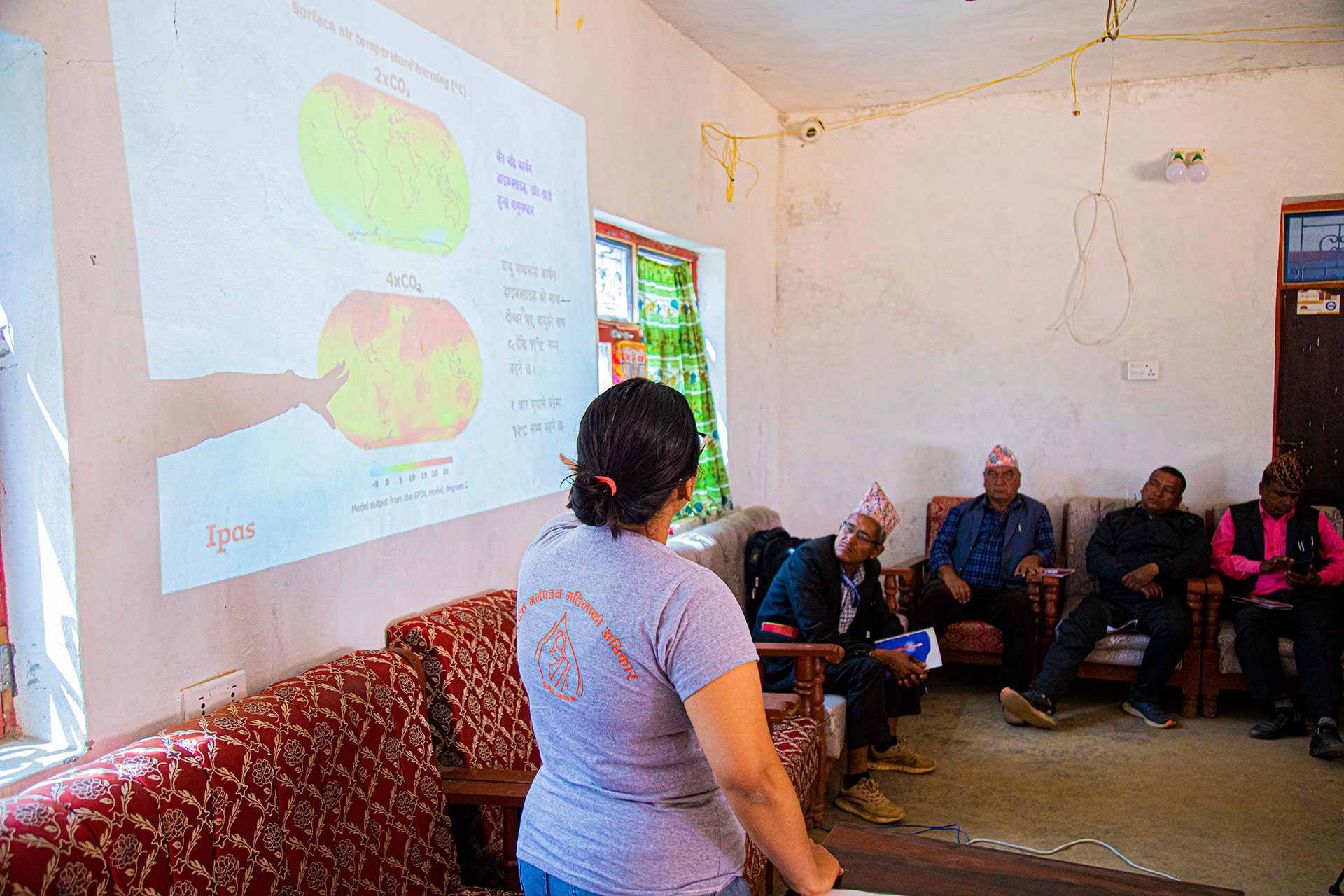
1. Develop and implement a local adaptation plan of action (LAPA) that integrates the need for accessible reproductive health services, including abortion and contraception. Khusbu Poudel, who helps lead Ipas Nepal’s women-led climate justice projects, says Ipas Nepal has supported 10 local governments in developing LAPA plans, as they are “the entry point for integrating climate change, gender, and sexual and reproductive health and rights into local adaptation plans.”
Pictured above: Ipas Nepal holds a climate change session with the local government during a review of the local adaptation plan of action (LAPA) in Kamalbajar Municiplaity, Achham.
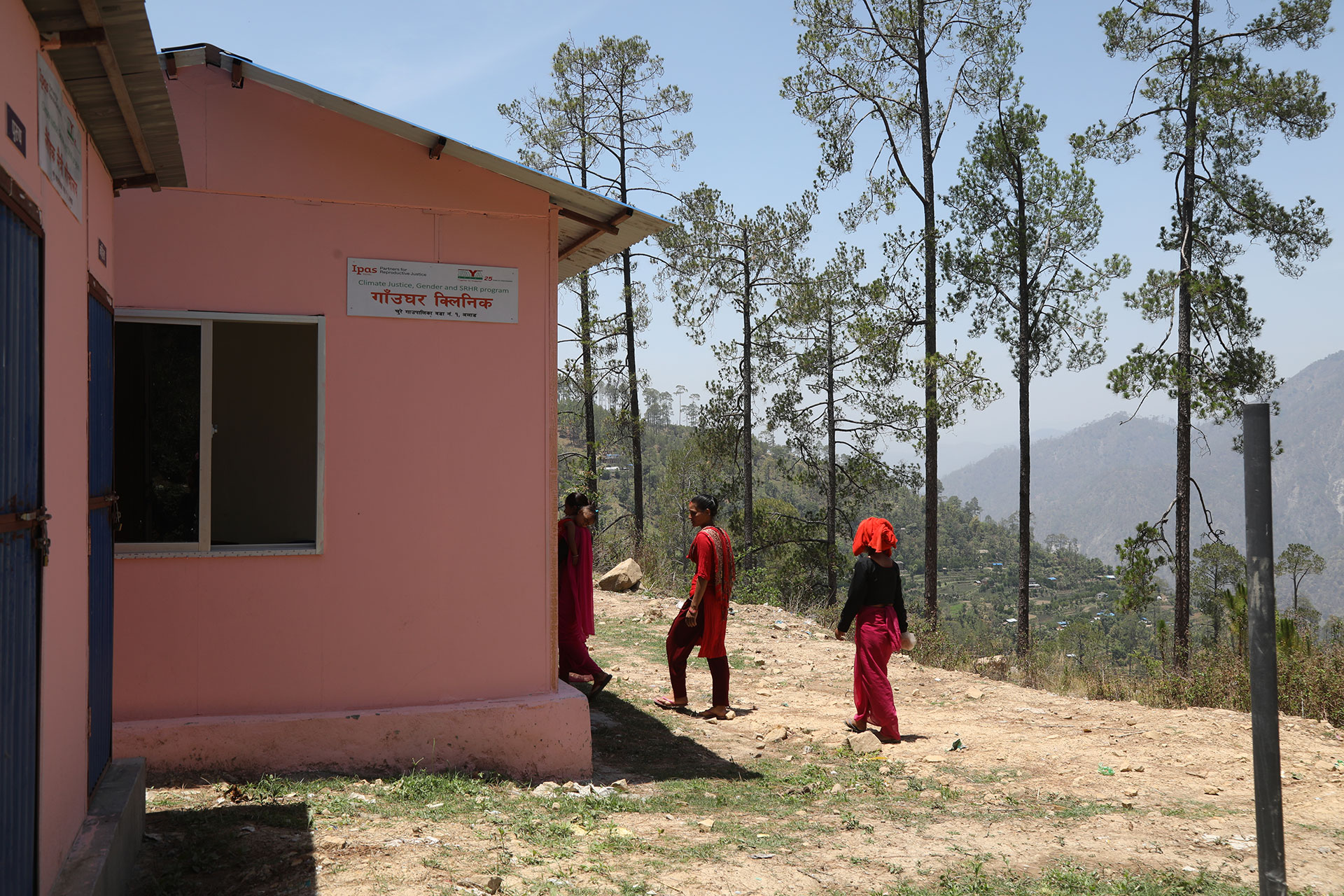
2. Build new health facilities that are strategically located so that even if there are floods or landslides, women and girls can still get to the facilities. Each month, a health professional comes to the health facilities, which offer basic health services as well as reproductive health care, including medical abortion and contraceptive services.
Pictured above: Outreach with the health clinic established by the support of Ipas Nepal in Chure RM, Ward 1.
3. Organize a “comprehensive reproductive health camp” that brought in a team of 12 doctors, nurses and volunteers to provide free health check-ups, with a specific focus on reproductive health. The camp was set up in a central location that was easily accessible to the community. More than 200 people got check-ups and medication.
4. Train additional nursing staff at local health facilities to provide abortion, long-acting contraceptive implants, and postabortion care (treatment for complications of unsafe abortions). The trainings were conducted at health facilities that had been identified in the LAPA response plan as being most vulnerable to the impacts of climate crises and have helped to make these services more accessible to women and adolescent girls living near those facilities.
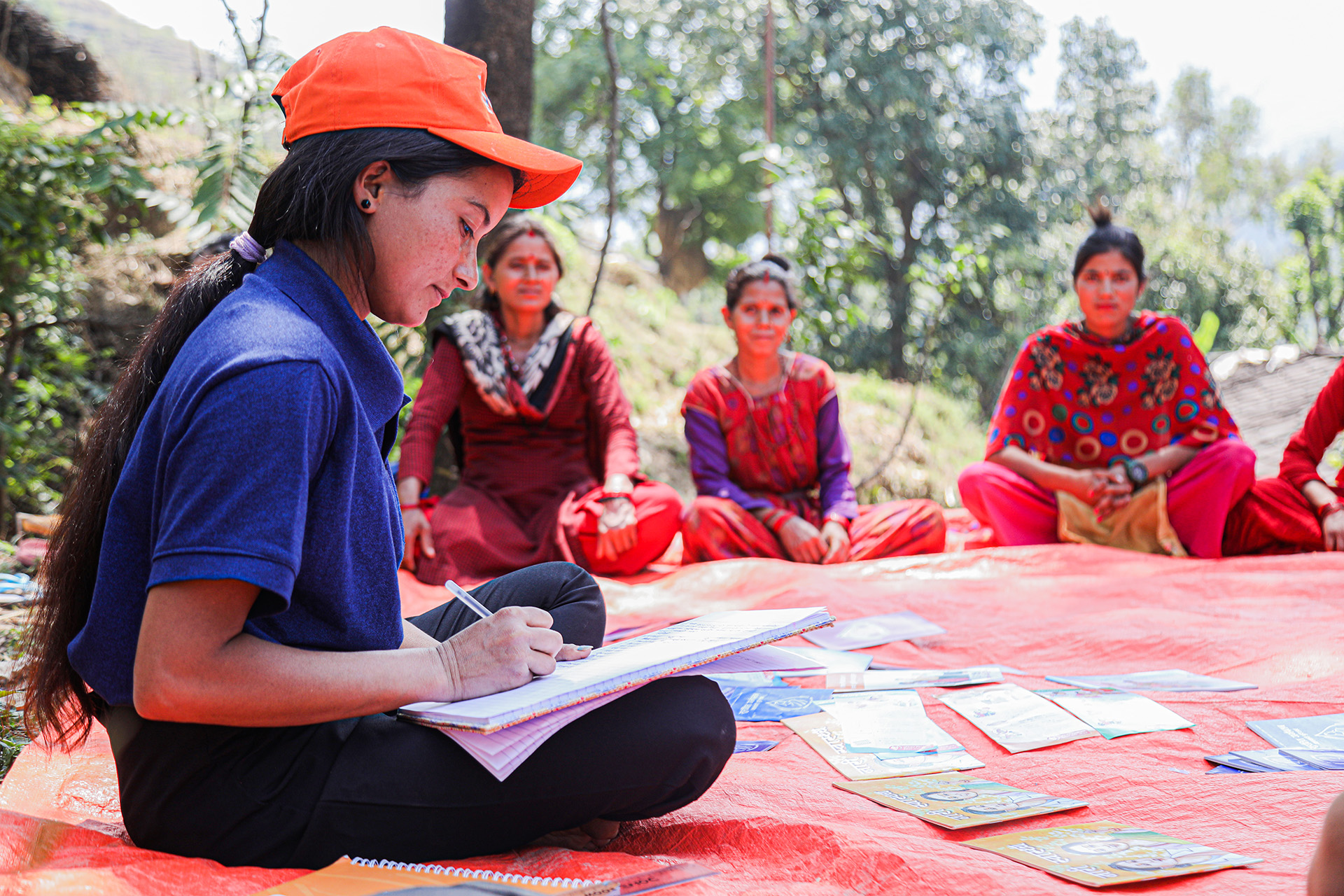
5. Increase community awareness of the link between climate change and sexual and reproductive health and rights. Workshops for women and girls, youth groups, and others in the community focused on how food and water scarcity, destruction of homes, livelihoods and health, and other impacts of extreme weather events can, in turn, lead to interrupted contraceptive use, more gender-based violence, and other issues that impact sexual and reproductive health.
Pictured above: An Ipas-trained Natural Leader conducts a community session on safe abortion services in Achham, Nepal.
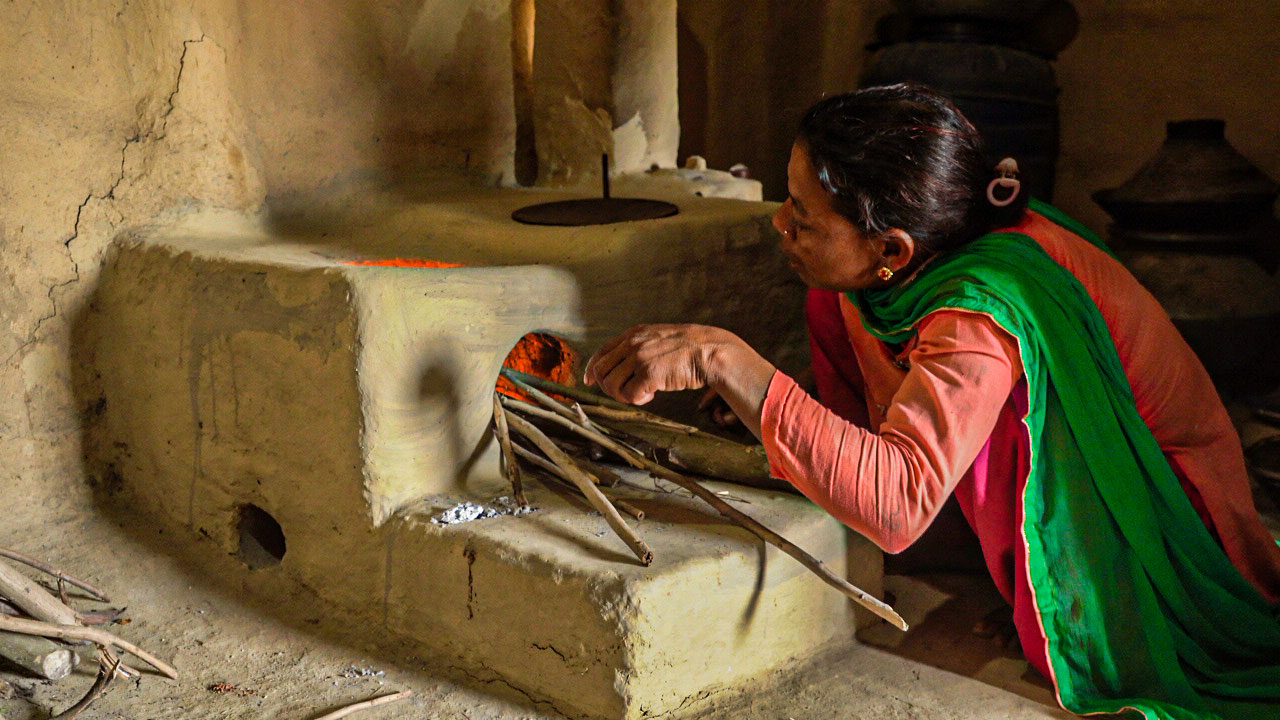
Recognizing that factors in the home also affect women’s ability to be resilient in the face of climate change, Ipas worked with community partners to have improved cooking stoves installed in 130 households in Chure. Firewood is needed for cooking, and women often have to walk long distances to collect wood. The new stoves require less wood for cooking and have chimneys to vent the smoke outside. This reduces women’s workloads and also will reduce their exposure to indoor smoke.
This 3-minute video highlights Ipas Nepal’s work to uphold sexual and reproductive health rights during climate crises


